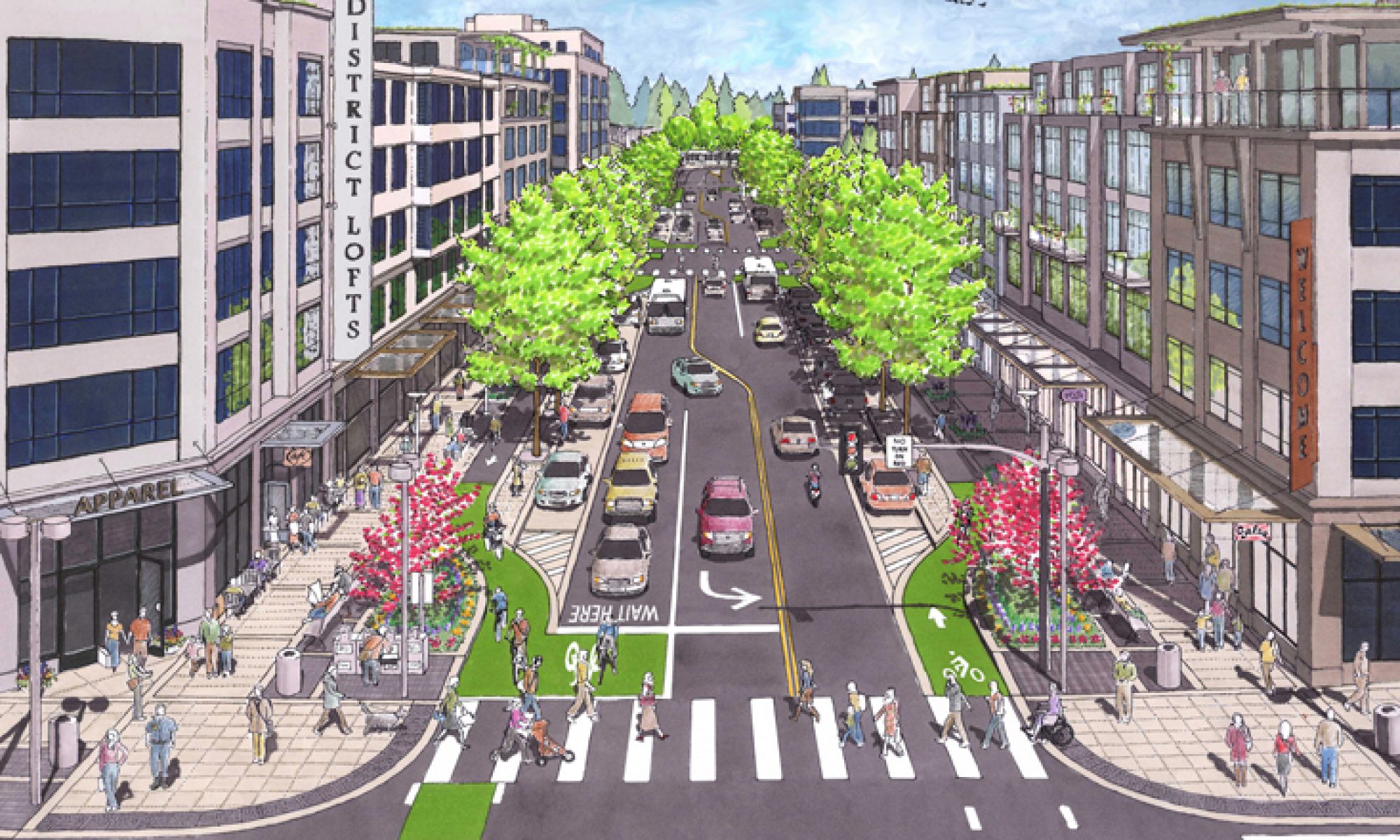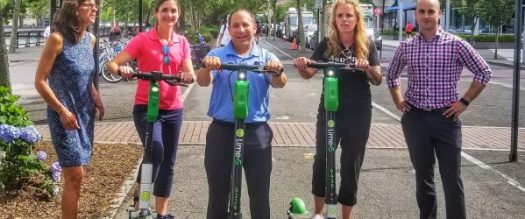Since the 1920s we’ve been conditioned to believe that roads are designed for cars (they weren’t). Traffic congestion and vehicular fatalities, plus the effects on health and climate has shown city leaders all over the world the need to modify/eliminate the use of motor vehicles, and build better infrastructure for bikes, walking and other modes of transit.
Enter scooters. We know that there’s a need for alternatives to driving, and scooter share is being introduced successfully as legitimate micro-mobility. Although the rules in most cities require them to be ridden on the street, why are scooter riders on sidewalks?
Would you let your 10-year-old ride a bike or a scooter on a street with vehicular traffic moving at 25mph, 35mph, 45mph? We need to design streets that are are safe for an 8-year-old to an 80-year-old. Let’s use that standard. Painted bike lanes are a start, but paint doesn’t protect. Until we have protected bike/scooter lanes everywhere (and we will!) we need to continue to work on reducing/eliminating the need to drive in our city by providing as many alternative transportation options as possible #toomanycars, and meanwhile seriously slow vehicle speeds! #slowthecars.
Most scooter riders using the sidewalk are afraid of cars, new survey shows
“As Salt Lake City officials threaten to crack down on dockless e-scooter companies that don’t do enough to reduce the number of users riding on sidewalks, new data suggests solutions to the problem go beyond education efforts.
A survey conducted by Lime, one of four e-scooter companies currently operating within the city, found that the primary reason users say they’re not on the streets isn’t because they don’t know the rules but because they fear for their safety riding next to fast-moving cars.”
https://www.sltrib.com/news/politics/2019/10/15/most-scooter-riders-using/










/cdn.vox-cdn.com/uploads/chorus_image/image/46776808/GettyImages-458043382.0.0.jpg?w=525&ssl=1)



